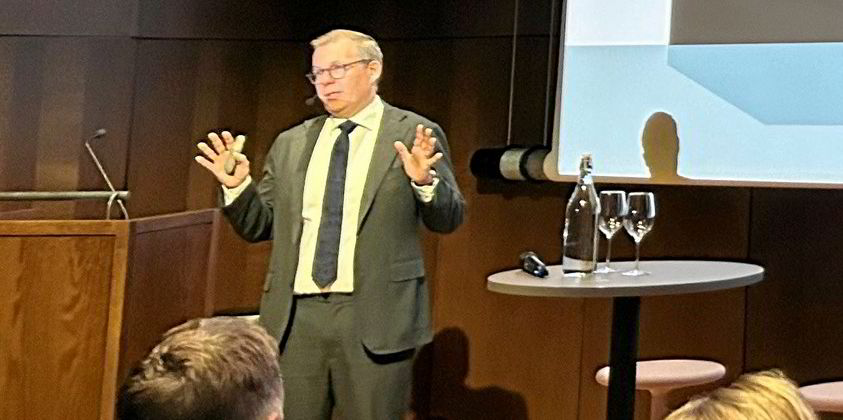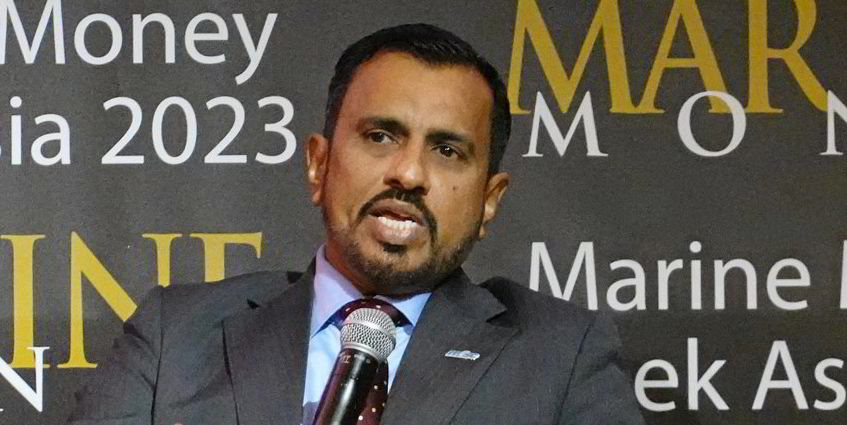As regulators continue to look for ways to make shipping more environmentally friendly, could they start looking at cracking down on consumers if greenhouse gas emissions continue to rise?
During the law firm’s Shipping Offshore Seminar at the National Museum in Oslo on Tuesday, Wikborg Rein attorney Andreas Fjaervoll-Larsen said he believes the industry should brace itself for more rules in the coming years, but said it would be mostly focused on owners, charterers and others.
He said regulators could crack down on consumers but did not think it was likely.
“If it doesn’t work, if the regulations that the governments are imposing on the shipping industry don’t work and we’re not able to push down the carbon footprint of the shipping industry, will we see regulations [to] regulate consumer behaviour?” he asked during a talk on decarbonisation trends.
“I don’t think so. I think they will be very reluctant to go in and directly regulate consumer behaviour because it will be so easy for it to be controversial.”
Fjaervoll-Larsen used plastic bag fees at the grocery store as an example of what more direct interventions could look like.
In many jurisdictions, shoppers who fail to bring reusable bags to go food shopping are charged extra for a bag.
“When I do the grocery shopping for the weekend, it costs me NOK 30 ($2.78) which I think is excessive,” he said.
As it stands, the IMO is pushing shipping to reach net zero carbon emissions by 2050 and the European Union is looking to slash overall emissions by 55% by 2030, with goals to cut shipping emissions and include them in the bloc-wide emissions trading scheme.
As it stands, shipping is responsible for roughly 2% of global emissions.
Fjaervoll-Larsen called it a “semi-qualified guesstimate” but said shipping would likely be hit with new technical regulations on top of the ones it already has.
He said the most likely rules would be around emissions allowances and trading systems.
Fjaervoll-Larsen said contracts for difference could also be implemented, allowing for long-term price certainty on alternative fuels.




